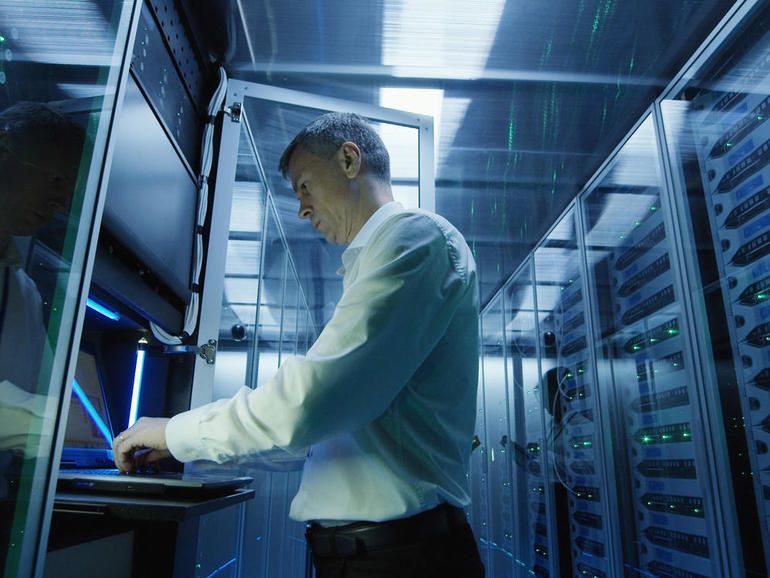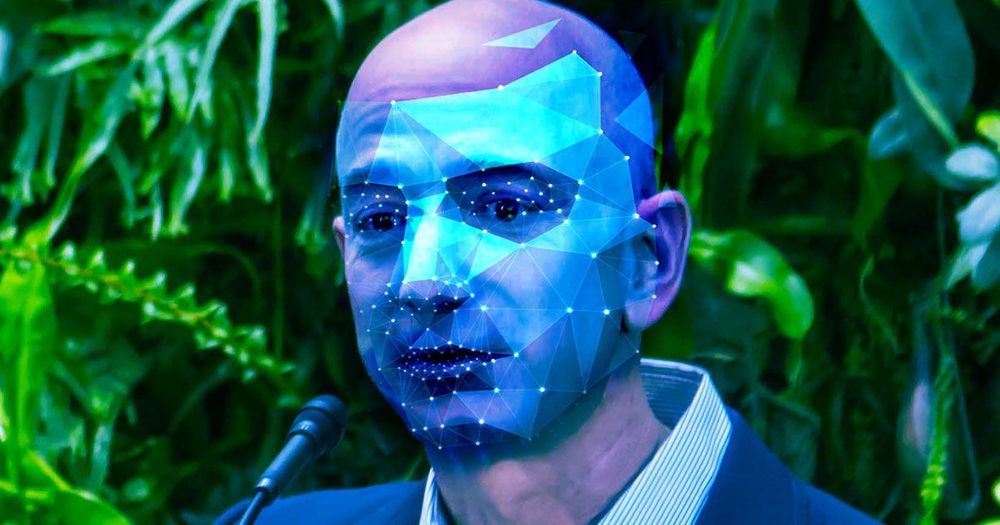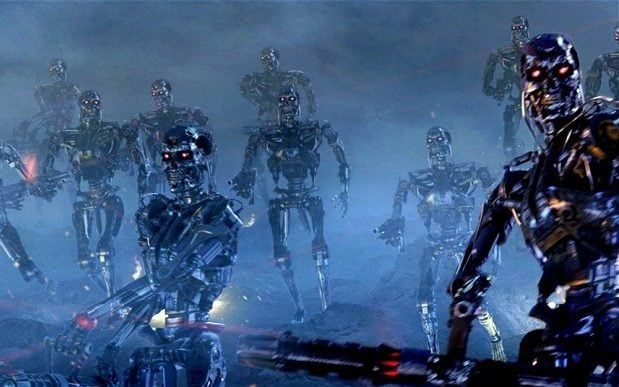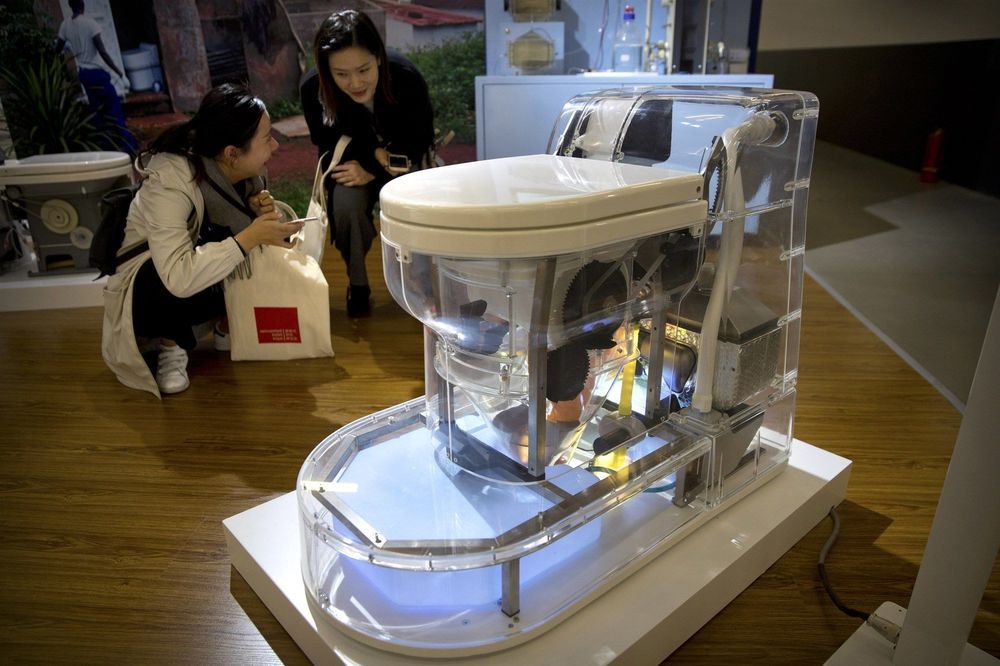DARPA is asking for help to create the super-fast network interface card that industry has so far failed to produce.


Finally, the future that children of the ’80s want to see is on its way. NASA is working on its very own Transformer — a bot called Shapeshifter, made up of smaller robots which can combine into different configurations to roll, swim, fly, and float.
Shapeshifter is a prototype for exploring Saturn’s moon Titan. Before it ended its mission by burning up in Saturn’s rings, the Cassini probe flew by Titan more than one hundred times, observing the moon which is surprisingly similar to Earth. It has rivers, lakes, and rain, but instead of being made of water, these bodies are made of liquid methane and ethane. On Earth, these are gases, but in the freezing temperatures of Titan, they are liquid. Cassini collected mapping data of the surface, and scientists have been keen to discover more since then.
“We have very limited information about the composition of the surface [of Titan],” Ali Agha, Principal Investigator at NASA’s Jet Propulsion Laboratory (JPL), said in a statement. “Rocky terrain, methane lakes, cryovolcanoes — we potentially have all of these, but we don’t know for certain. So we thought about how to create a system that is versatile and capable of traversing different types of terrain but also compact enough to launch on a rocket.”

(VATICAN CITY) — Pope Francis on Friday warned tech company executives, diplomats and financiers that the race to create artificial intelligence and other forms of digital development pose the risk of increasing social inequality unless the work is accompanied by an ethical evaluation of the common good.
Francis addressed a Vatican conference that brought government envoys and Facebook and Google representatives together with philosophers, physicists and ethicists. A smattering of academics and Catholic bishops rounded out participants at “The Common Good in the Digital Age” conference.
The three-day gathering is the latest evidence of the Vatican wanting a place in the debate over the prospects and perils of artificial intelligence.


The rise of killer robots is now unstoppable and a new digital Geneva Convention is essential to protect the world from the growing threat they pose, according to the President of the world’s biggest technology company.
In an interview with The Telegraph, Brad Smith, president of Microsoft, said the use of ‘lethal autonomous weapon systems’ poses a host of new ethical questions which need to be considered by governments as a matter of urgency.
He said the rapidly advancing technology, in which flying, swimming or walking drones can be equipped with lethal weapons systems – missiles, bombs or guns – which could be programmed to operate entirely or partially autonomously, “ultimately will spread… to many countries”.

Well, it’s sound weird but in the upcoming future, your toilet will be your mini doctor. A company called Micron is developing a smart artificial intelligence-powered toilet that will reportedly be able to diagnose your state of health and risk of disease by analyzing your bodily waste.
The major goal of this technology is to analyze bowel movements and recognize the signs for health issues or ailments early on. This information will also use to understand early symptoms of certain diseases.
Elon Musk has once again issued a stark warning over his fears about the rise of artificial intelligence.
The Telsa CEO shared a pair of tweets today that stated it will not be long until ‘advanced AI’ manipulates social media.
Musk has suggested sites closely watch to see if bot swarms are evolving faster, as this could be a dead giveaway of a robot takeover.
Spot is an agile mobile robot that you can customize for a wide range of applications. The base platform provides rough-terrain mobility, 360 degree obstacle avoidance, and various levels of navigation, remote control and autonomy. You can customize Spot by adding specialized sensors, software and other payloads. Early customers are already testing Spot to monitor construction sites, provide remote inspection at gas, oil and power installations, and in public safety. Spot is in mass production and currently shipping to select early adopters. Find out more about using Spot in your application by visiting us at https://www.BostonDynamics.com/Spot.

For all the talk about how artificial intelligence could transform what happens in the classroom, AI hasn’t yet lived up to the hype.
AI involves creating computer systems that can perform tasks that typically require human intelligence. It’s already being experimented with to help automate grading, tailor lessons to students’ individual needs and assist English language learners. We heard about a few promising ideas at a conference I attended last week on artificial intelligence hosted by Teachers College, Columbia University. (Disclosure: The Hechinger Report is an independent unit of Teachers College.)
Shipeng Li, corporate vice president of iFLYTEK, talked about how the Chinese company is working to increase teachers’ efficiency by individualizing homework assignments. Class time can be spent on the problems that are tripping up the largest numbers of students, and young people can use their homework to focus on their particular weaknesses. Margaret Price, a principal design strategist with Microsoft, mentioned a PowerPoint plug-in that provides subtitles in students’ native languages – useful for a teacher leading a class filled with young people from many different places. Sandra Okita, an associate professor at Teachers College, talked about how AI could be used to detect over time why certain groups of learners are succeeding or failing.
When NASA’s Cassini performed more than 100 flybys of Saturn’s moon Titan, scientists piecing together the data began forming a picture of a pretty treacherous environment, with liquid methane rain, cold rivers and icy volcanoes all potentially part of the mix. The agency’s scientists are already at work developing vehicles that will one day be used to explore such surrounds, with its newly revealed Shapeshifter robot another interesting example.
The Shapeshifter is a developmental concept at this early stage, and is designed to change its shape depending on the type of alien terrain it encounters. The team at NASA’s Jet Propulsion Laboratory have 3D printed a prototype of the robot that is already capable of some impressive maneuvers.
NASA’s thinking with the Shapeshifter is that it will actually be made up of a number of smaller robots, which can self-assemble into a larger machine and disassemble again as the mission calls for it.